Supporting BIPOC Farmers in Minnesota
As a white person who values sustainability, as a florist who prioritizes local sourcing, I want to acknowledge the intersections of privilege and the complex racial histories around the local/sustainable farming “movement” — and I want to ask us all to ask ourselves how we are perpetuating racial inequality versus working toward racial equity. It’s important to acknowledge that we are living (and growing) on stolen Native land. So when we boast or applaud sustainable farming efforts, notice: are they all trendy, middle and upper class white people? Why? And, we must not erase the dark history of how we’ve aqcuired land and opportunties. I encourage you to pivot your purchasing efforts (as well as donate) to BIPOC organizations in the local farming world.
Note: BIPOC stands for Black, Indigenous and People of Color and is a term meant to refer to people in non-white communities. In our state and in America as a whole, land owners are disproportionately white (our violent and discriminatory history is the reason for this). The most recent US Department of Agriculture Census is from 2017 (they conduct it every five years) and it’s noted that approximately 3/4 of farmers participated in the census. The graph below from MPR News focuses shows racial demographics of Minnesota farmers.
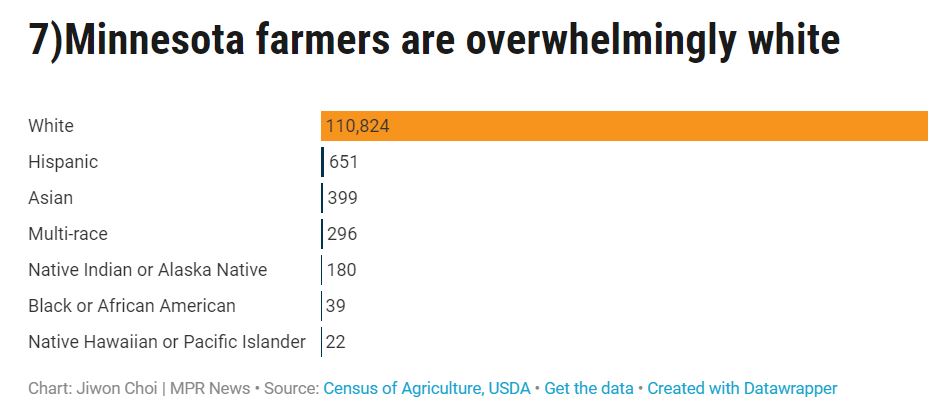
Ongoing oppression that BIPOC face make land access difficult, but we can all work against oppressive systems in order to create a more equitable future. Here are just a few organizations and individuals you can support in a variety of ways:
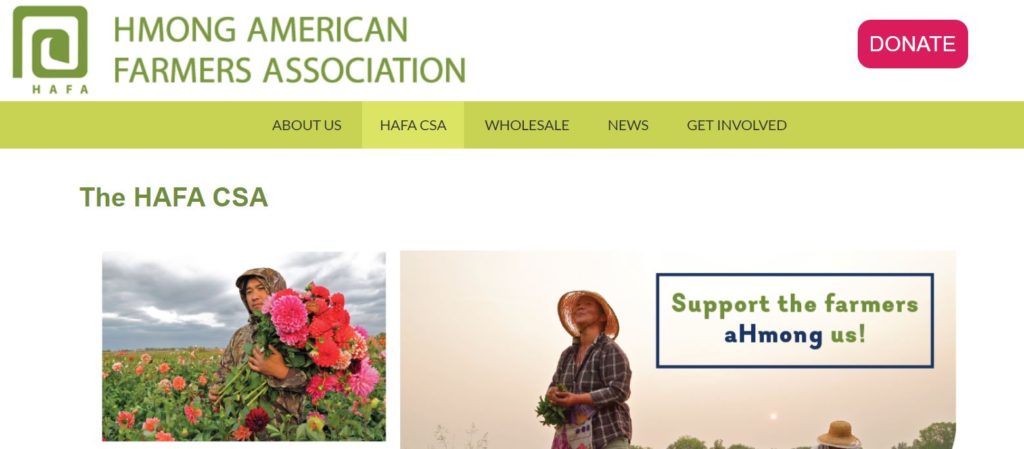
The Hmong American Farmers Association (HAFA) supports Hmong Farmers in Minnesota through an incubator farm, their own market, professional development and more. You can contribute by donating, purchasing a CSA, volunteering when applicable; listening and uplifting stories and voices of Hmong farmers is also a useful contribution, so sign up for the newsletter and follow HAFA on social media.
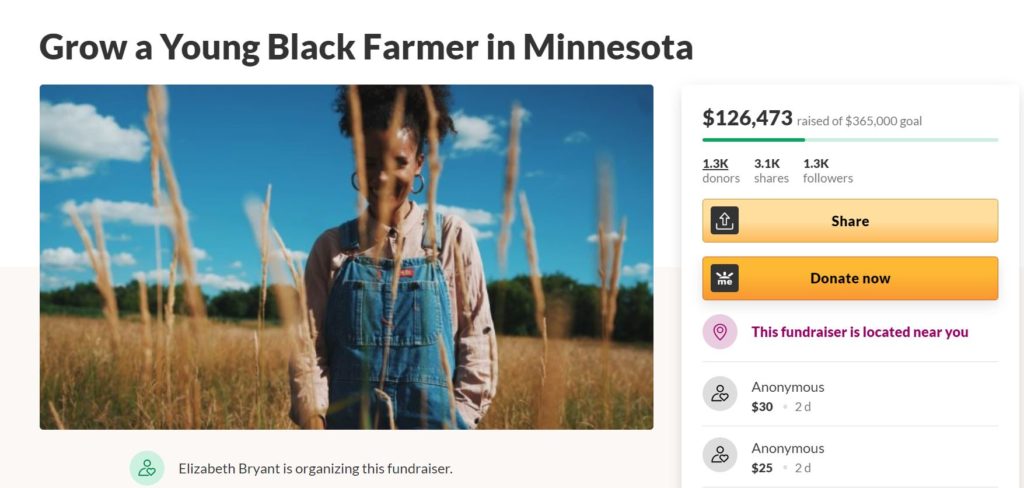
Lizy Bryant is a Queer, Black emerging land steward raising money to purchase the 25 acre farm her aunt has managed for decades. Learn more from this beautiful preview by Adja Gildersleve. She plans to create an agricultural, creative, and healing space (just an hour from the Twin Cities!) for Black folks and families. The GoFundMe still needs traction as they aren’t yet to the halfway point. Please donate, share and follow along on Instagram @blackland_mn.
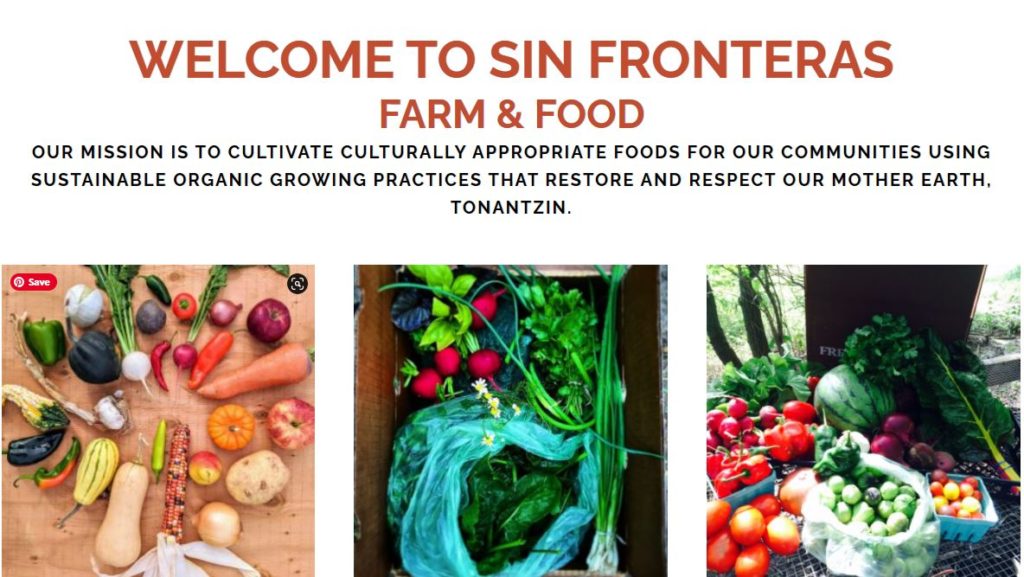
Sin Fronteras is blazing a new trail by offering a culturally appropriate CSA to Latinx/Mexicanx households. Registration for the 2021 season is open; CSA shares are available in a few sizes and seasons and feature a beautiful array of sustainably grown produce as well as add-ons like salsa, tortillas, honey, beans, dried chiles and coffee. Sin Fronteras also grows for groceries and restaurants in the Twin Cities and hopes to have a “legit Taco Farm” in the future!
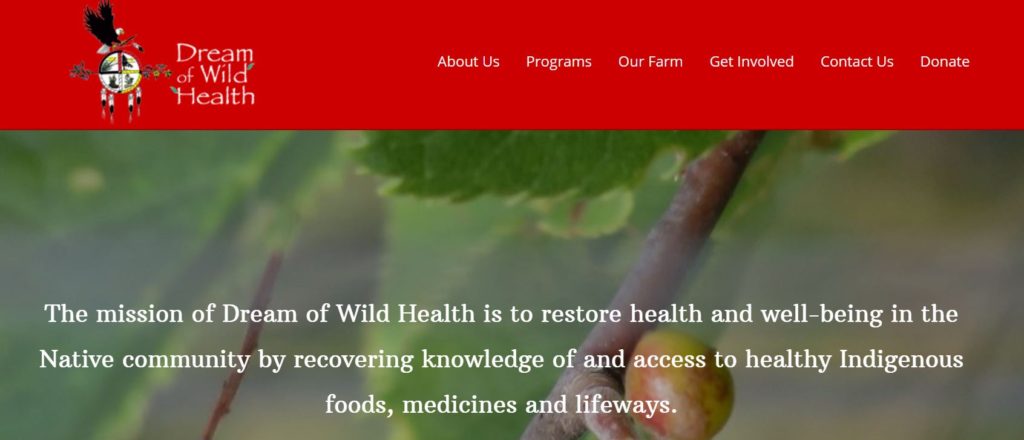
Dream of Wild Health is a longstanding Native organization with their own farm near the Twin Cities that provides a (currently sold out) Indigenous Food Share and also participates in two farmers markets in Minneapolis. They offer youth programs for Native kids from the Twin Cities during the summer, too. Donating to this non-profit supports communities whose stolen land we are currently on. I encourage you to sign up for their newsletter to keep informed and regularly answer the organization’s asks and to celebrate their progress! Find them at the market this season, too!
